Yesterday, we continued to experience weather difficulties. The weather in the Bering Sea in December is just not conducive to science operations. The scientists have been trying to stay busy, working on reports, analyzing data, etc. I stepped out onto the weather deck after lunch to get a few pictures. I got quite the surprise when this wave hit the ship and sprayed a wall of water onto the deck.
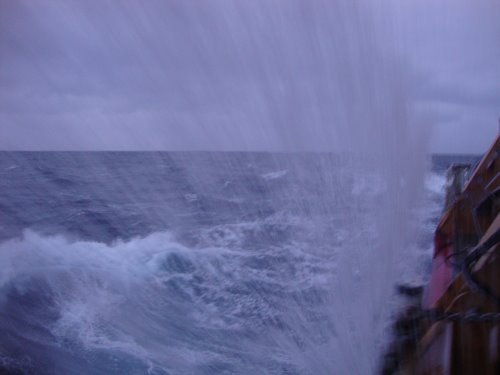
Station MN19 was the first station we have been able to sample using the ring net and bongo net since December 5. We were SO excited to be able to collect some animals and get back to science. Unfortunately, the bongo nets were a little worse for wear when they was recovered on the fantail. BOTH nets had very large holes that are more than likely unrepairable while out to sea. Good thing we brought along a spare! We also had four of the five nets on the multi-net rip as well. The swell was worse than we thought!
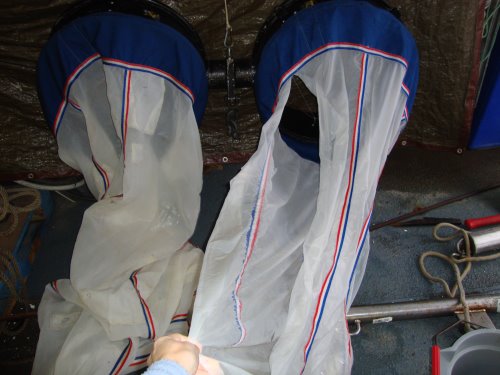
Meet Dr. Dean Stockwell. Dr. Stockwell is research faculty at the University of Alaska- Fairbanks. His primary job is to conduct research full-time in support of his academic unit. In his case, that would be to conduct research involving marine phytoplankton in conjunction with the University of Alaska's School of Fisheries and Oceanography program. This is considered to be fixed-term faculty (meaning he generates his own salary through grants) with the ultimate goal of advancing the mission of the unit. Although his primary duty is research, he may be called upon to teach or mentor students.
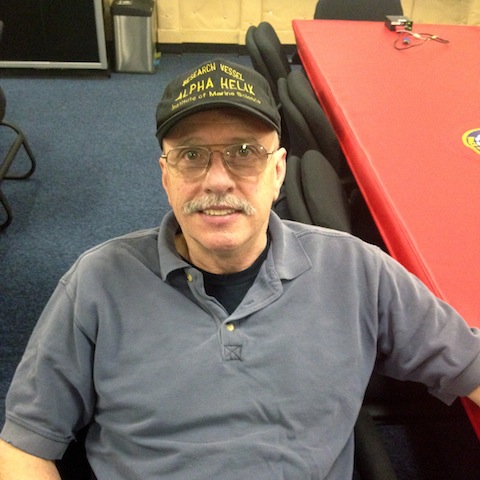
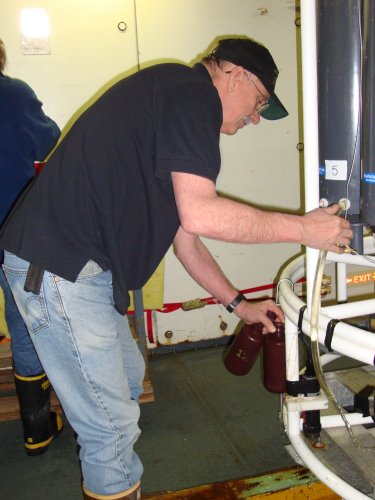
Dr. Stockwell's job has taken him from polar region to polar region and he has traveled the world doing his work. He really enjoys observing natural phenomena like phytoplankton blooms and trying to figure out what set of conditions were necessary for the event to take place. In each investigation there is still the thrill of discovery, even if it is on a microscopic scale. Nature always provides the unexpected and someone is called on to describe the what and why of the event.
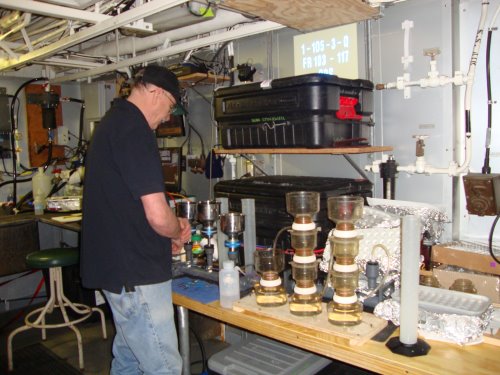
When asked what advice he would give someone who may be interested in his career field, he said “Academically, collect as many tools as you can along your career path”. “These skill sets (whether computer, laboratory or academic) will help you deal with and develop a flexibility in looking at problems. Science is not a static field it is always growing, evolving and new tools and new concepts help us see things we could only dream of early in a career. Pick an area of study you really enjoy and be willing to work hard. This enthusiasm will carry you through hard times. Always work to develop your skill sets; writing is very important as is the ability to present your work orally. Learn from the mistakes of others in their presentations. Have fun in what you do.”
Stay tuned as we continue our exciting voyage on the USCG Cutter Healy. Until then...
“Live as if you were to die tomorrow. Learn as if you were to live forever” - Mohandas Gandhi


Comments